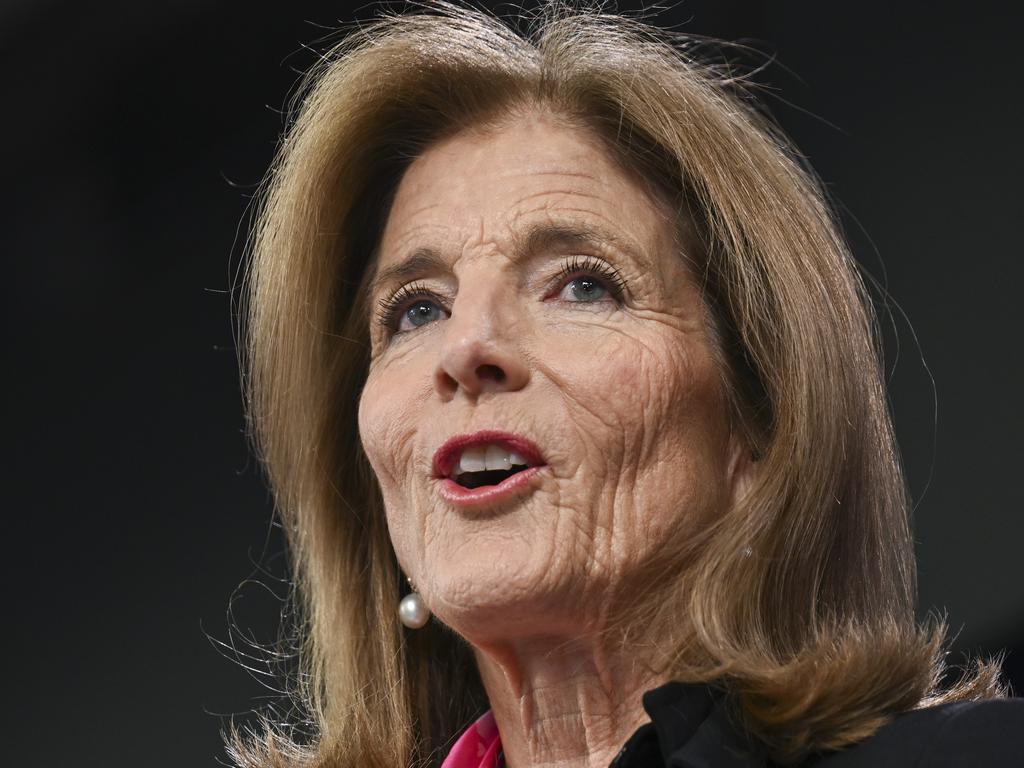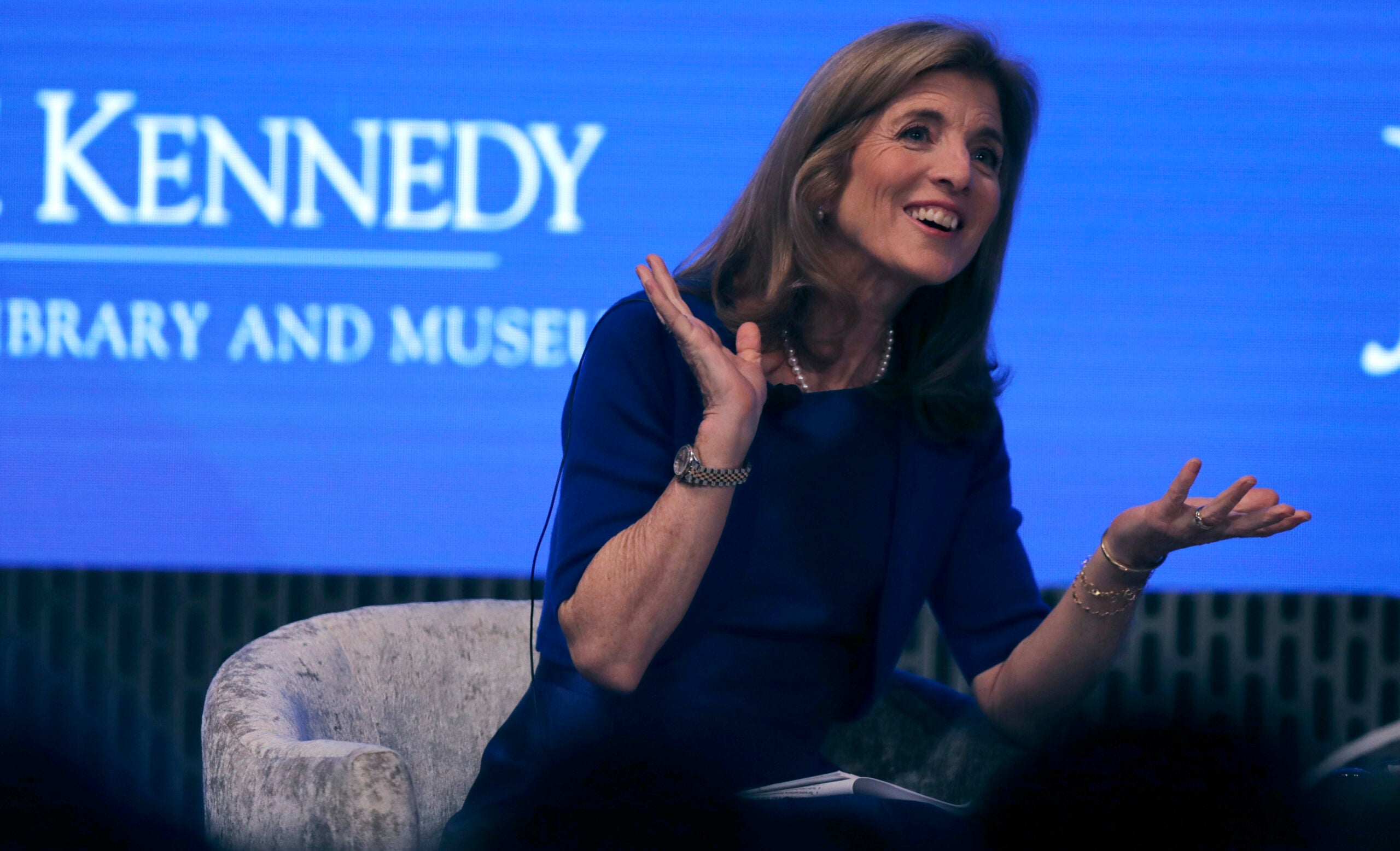Is it possible for family ties to override public service, particularly when the stakes involve the health and well-being of a nation? Caroline Kennedys recent actions suggest that family loyalty and a deep-seated concern for public health are indeed powerful motivators, even when they clash with political appointments.
On Tuesday, Caroline Kennedy, a name synonymous with American political royalty and a figure who has gracefully navigated the currents of public life, issued a stark warning. This wasnt a casual observation or a polite suggestion; it was a direct appeal to the United States Senate. The subject? The nomination of her cousin, Robert F. Kennedy Jr., to lead the Department of Health and Human Services.
The content of her message, delivered in a scathing letter to lawmakers, was nothing short of a bombshell. Kennedy minced no words, branding her cousin a predator in the context of his potential role. This wasn't the voice of a casual observer, but that of a woman intimately familiar with the Kennedy familys complex history, its triumphs, and its tragedies. The implications of her intervention were significant, raising questions about the Kennedy familys internal dynamics, Robert F. Kennedy Jr.'s suitability for the role, and the role of family in political decision-making.
The backdrop to this public denouncement is a life lived under the intense scrutiny of the public eye. Caroline Kennedy, born November 27, 1957, in New York City, experienced a childhood marked by both privilege and profound loss. The assassination of her father, President John F. Kennedy, in Dallas on November 22, 1963, ended her idyllic White House upbringing, and the iconic image of the young Caroline at her fathers funeral remains etched in the collective memory of the nation. Dressed in matching powder blue coats with her brother, she stood by her mother's side during the funeral. This formative experience undoubtedly shaped her perspective and her approach to public life.
The recent events, however, add a new layer of complexity to her narrative. While many remember her for her grace and poise, it's clear that she has also been dealing with significant health challenges. The nature of her health battle has, at times, been the subject of speculation and media scrutiny.
The former U.S. Ambassador to Japan (2013-2017) and to Australia (2022-2024), and daughter of President Kennedy, is a well-known public figure with an illustrious career as a diplomat, author, and attorney. Her actions have prompted reflection on the interplay of public service, private lives, and the enduring bonds of family.
Caroline Kennedys recent intervention highlights the intricate and often emotionally charged nature of political endorsements. This is about more than a policy debate; it's a clash of deeply held personal convictions. Her statement serves as a powerful reminder that even within the rarefied world of American politics, the most profound decisions are often made by individuals, motivated by emotions and relationships that are intensely personal.
| Category | Details |
|---|---|
| Full Name | Caroline Bouvier Kennedy |
| Date of Birth | November 27, 1957 |
| Place of Birth | New York City, USA |
| Education | Radcliffe College, Columbia Law School |
| Occupation | Author, Diplomat, Attorney |
| Notable Positions | U.S. Ambassador to Japan (2013-2017), U.S. Ambassador to Australia (2022-2024) |
| Family | Daughter of John F. Kennedy and Jacqueline Kennedy Onassis; Married to Edwin Schlossberg |
| Children | Rose Schlossberg, Tatiana Schlossberg, John Schlossberg |
| Known For | Public service, literary contributions, and her family's prominent role in American politics. |
| Reference | U.S. Department of State |
Caroline Kennedy has been candid about her battle with rheumatoid arthritis, a chronic autoimmune condition affecting her bones and joints. Diagnosed in 1999, this illness has presented significant challenges, including severe leg pain and mobility issues. The impact of these conditions on her daily life is undoubtedly considerable, and her openness in discussing it has brought attention to the need for greater awareness of chronic illnesses. These conditions require constant monitoring and management in order to minimize their impact on health.
It is worth noting that Caroline Kennedy isn't the only member of the Kennedy family to have confronted health issues. Discussions about Caroline Kennedy's health journey have occasionally surfaced, prompting curiosity about her health and how she manages life's challenges. Her openness about her thyroid cancer diagnosis and treatment has been praised for raising awareness about the importance of early detection and regular health screenings.
The recent intervention is not an isolated incident. The echoes of the past resonated strongly in her actions. This is particularly clear in the light of Kennedy Jr.'s nomination as health secretary. In a video posted by her son, Jack, Caroline made a number of accusations against Bobby. She called him a predator who is addicted to attention and power, on Jan. 28, just one day before his
In a statement, Maria Shriver expressed support for her cousin, Caroline Kennedy, following her scathing letter about Robert F. Kennedy Jr.'s nomination as health secretary. Shriver wrote, "love you".
Kennedy Jr.'s nomination has sparked significant controversy and intense scrutiny. There were many in the political arena who voiced concerns regarding his qualifications, particularly given his controversial views on vaccinations and other public health matters. Carolines intervention, therefore, can be viewed as a powerful expression of her personal and professional judgment. It reflected the gravity she attached to the matter.
Caroline Kennedys decision to speak out also touched upon themes of family loyalty. The idea of family members, even within the Kennedy clan, being at odds publicly is often considered a delicate matter. However, the gravity of the situation seemed to have overridden such concerns. In this case, Kennedy chose what she viewed as her moral duty, over any loyalty to her cousin. Her actions demonstrated a willingness to put public health concerns above family bonds.
The juxtaposition of Caroline Kennedys public service with her battle against rheumatoid arthritis creates a poignant picture. She has often maintained her privacy while addressing her health issues publicly. This has led to admiration from those familiar with the challenges of living with chronic illness. It also shows her determination to continue her work. As she navigates the complexities of her illness, she has continued to play a prominent role in public life.
This is a life that has been inextricably linked to the American political landscape, offering valuable insights into the complexities of public life, the impact of family, and the importance of individual choices in the face of both personal and political adversity. The image of her on the red carpet with her husband in a rare appearance, adds a sense of normalcy to her extraordinary life.
The reaction to Kennedys statements illustrates the sensitivity surrounding the nomination of individuals to sensitive government positions. These positions are designed to serve the country. Caroline Kennedys assessment, though controversial, should trigger a robust debate about the criteria used for these appointments. Her actions highlight the need for thorough scrutiny and raise questions regarding the role of personal biases, family ties, and the publics well-being in political appointments.
The implications of Caroline Kennedy's statements reach far beyond a simple expression of her personal opinion. They present a direct challenge to the narrative of unqualified candidates. Her words have opened up a broader discussion. This discussion regards the integrity of the selection processes. It also speaks volumes about the importance of prioritizing expertise and experience when choosing leaders for critical public health roles.
In considering Caroline Kennedys life, it's difficult to disregard the role her health plays in her legacy. Rheumatoid arthritis is a chronic autoimmune condition that affects joints such as the fingers, hips, lower back, and knees. The symptoms include fatigue, joint pain, and difficulty concentrating. The illness presents daily challenges that can interfere with her ability to carry out her duties.
The legacy Caroline Kennedy will leave behind is one of resilience, dedication, and commitment to public service, along with her openness about her health journey. She has also demonstrated a great deal of bravery and determination.
Her story has become intertwined with some of the most significant events of her time. Her life serves as an inspiration. It is a testament to the enduring spirit of a woman who has not only survived the trials of her family's history but has also forged her own path as a leader, an advocate, and a voice of conscience. She has left an indelible mark on the American political landscape.


